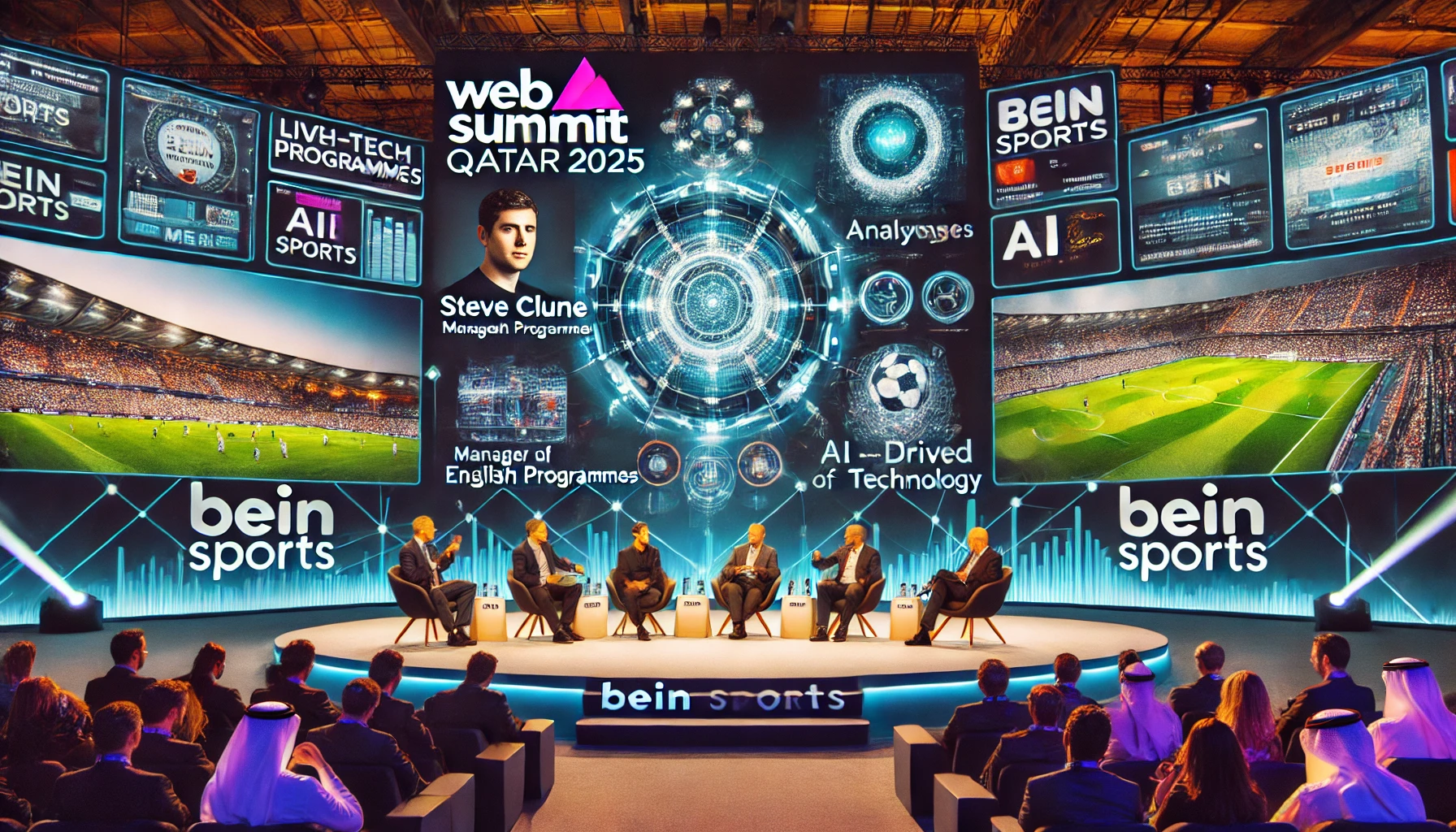At Web Summit Qatar 2025, Steve Clune, Manager of English Programmes at beIN Sports MENA, shared valuable insights into beIN’s role in global sports broadcasting, the impact of technology on media, and the future of content consumption.
beIN Sports MENA: A Global Sports Media Powerhouse
Clune manages beIN Sports’ English language channels across the Middle East, overseeing all aspects of live and non-live content, studio productions, and programming. As one of the largest sports broadcasters globally, beIN Sports holds rights to major leagues and tournaments, including:
- UEFA Champions League & Premier League
- FIFA World Cup & UEFA Events
- NBA & ATP Grand Slams
“There are very few high-profile sporting rights that beIN does not own or broadcast across the MENA region,” Clune noted. With coverage spanning 24 MENA countries and 40 global markets, beIN has grown into a major player in the sports media industry.
Web Summit & The Importance of Being Present
This marks beIN’s second year at Web Summit Qatar, a five-year commitment by the country to host one of the world’s premier tech gatherings.
“We felt it was crucial to have a presence here,” Clune said. “This is an opportunity to showcase how we use technology, operate behind the scenes, and engage with global media representatives.”
How COVID Changed Sports Broadcasting Forever
Reflecting on industry changes, Clune highlighted COVID-19 as a game-changer for broadcasting:
- Remote broadcasting models replaced high-cost, on-site setups.
- More investment in Doha-based technology hubs to manage global events remotely.
- Redefined how broadcasters balance cost-efficiency with high-quality coverage.
“COVID forced the industry to think differently and innovate to remain sustainable,” Clune explained.
The Role of AI in Sports Broadcasting
While AI adoption is a hot topic in media, beIN Sports is approaching AI cautiously:
- AI is actively used in piracy prevention to protect broadcasting rights.
- AI is automating English-to-Arabic translations, ensuring content accessibility for the 90% Arabic-speaking audience.
- AI is not yet heavily integrated into on-screen production, as beIN prioritizes accuracy over speed in AI adoption.
“There’s pressure to be first, but first isn’t always right,” Clune remarked, emphasizing the strategic caution broadcasters must take with AI integration.
What’s Next for Sports Media?
Looking ahead, Clune identified changing content consumption habits as the biggest challenge in broadcasting:
- Attention spans are decreasing—sports media must adapt to shorter, personality-driven content.
- Platforms are diversifying—traditional broadcasters now compete with social media, streaming platforms, and digital-first sports content.
- Sports leagues are adjusting formats—MLB, NBA, and ATP have all introduced quicker game structures to retain audience engagement.
“We are competing with more platforms than ever before—it’s no longer just about linear broadcasting but investing in multiple digital and social platforms to stay relevant.”
Final Thoughts
With evolving technology, AI, and shifting audience behavior, sports broadcasting is at a pivotal crossroads. beIN Sports MENA remains committed to adapting and leading the industry while staying true to high-quality content delivery.
📢 Stay updated with more insights from Web Summit Qatar 2025!
🔗 Read more at breakingai.news!





